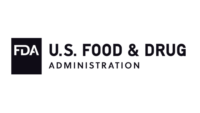FDA Responds to CFP Recommendations for Food Code, Retail Program Standards

Image credit: Wyron A via Unsplash
The U.S. Food and Drug Administration (FDA) recently published its response to suggestions given to the agency by the Conference for Food Protection (CFP) at its 2023 Biennial Meeting held in April 2023. Recommendations given to FDA by CFP cover the Food Code and its Annexes, the Voluntary National Retail Food Regulatory Program Standards (Retail Program Standards), and other actions.
A total of 25 changes to the FDA Food Code or its Annexes were recommended, and another 19 actions not directly related to the Food Code were suggested. FDA “conceptually agreed” on 17 of the Food Code recommendations and 16 of the non-Food Code suggestions, and either “partially concurred” or “non-concurred or will consider” the remaining 11 recommendations. Suggestions made by CFP to which FDA conceptually agreed include:
- Amending the Food Code regarding double handwashing and nail brush usage, expiration dates for chemical sanitizing test strips, reducing the cross-contamination risk for the use of reusable wiping cloths
- Defining or revising “managerial control,” “food safety management systems” (FSMS), “reusable containers,” and “reduced oxygen packaging” in the Food Code
- Adding off-site warewashing facilities for multi-use articles, language to include “reuse of containers,” and laboratory methods for reinstating ill food workers to the Food Code
- Various amendments to the Food Code Annexes (e.g., on hand antiseptics and use of disinfectants during cleanup of vomit and diarrhea) and References
- Confronting bakers adding sesame flour to a recipe rather than a “may contains” statement to the label
- Tracking versions of and adding verification guidelines for Standard 2, Appendix B-1 (Trained Regulatory Staff, Curriculum for Retail Food Safety Inspection Officers) of the Retail Program Standards
- Changing re-standardization frequency for stall not standardizing others
- Editing requirements and the form for self-assessment and verification audit
- Incorporating plan review into Standard 3 (Inspection Program Based on Hazards Analysis and Critical Control Points [HACCP] Principles) of the Retail Program Standards
- Create verification instructions for Standard 4 (Uniform Inspection Program) of the Retail Program Standards
- Edits to Standard 5 (Foodborne Illness and Food Defense Preparedness and Response) of the Retail Program Standards and its definitions
- Referencing crosswalk and setting requirements for foodborne illness training program crosswalk content
- Changes to Establishment File Worksheet Form 3A under Standard 6 (Compliance and Enforcement) of the Retail Program Standards, drafting Standard 6 Standardized Key Crosswalk to the 2017 FDA Food Code
- Defining verification audit parameters under Standard 8 (Program Support and Resources) of the Retail Program Standards
- Setting Retail Program Standards verification auditor criteria.
FDA partially concurred with the following recommendations:
- Amending the Food Code to include rice acidification parameters, to address the use of disinfectants, to define “preservation,” and add considerations for bulk refillable hand soap dispensers
- Adding “impermeable” as a new defined term in the Food Code to clarify cook-chill processes.
FDA does not concur or will consider the following recommendations:
- Amending the Food Code regarding gloves used as single-use disposable utensils, to include procedures for cleanup of vomit and diarrhea, and to clarify fish thawing requirements
- Interpreting if the 2022 FDA Food Code provides investigation authority
- Creating a committee for sea moss and sea gel
- Reviewing and streamlining the retail sushi HACCP process.
CFP is a nonprofit organization that was created to provide a formal process for members of industry, regulatory, academia, consumer, and professional organizations to provide input on the development and modification of food safety guidance for food safety laws and regulations at all levels of U.S. government.
Looking for a reprint of this article?
From high-res PDFs to custom plaques, order your copy today!






